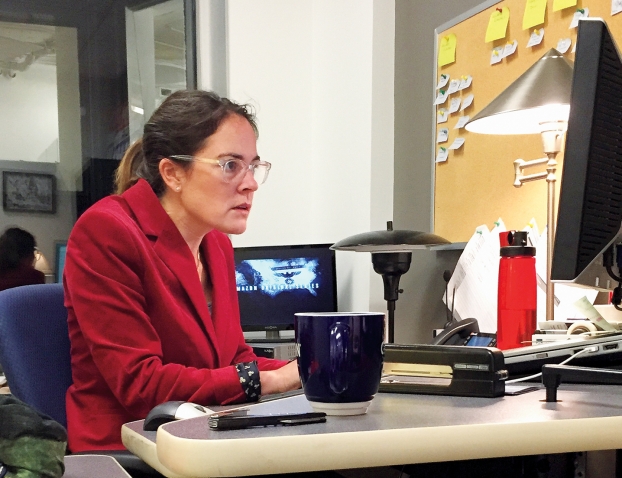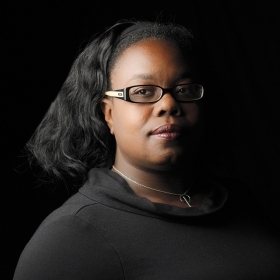Photo by Julie Bykowicz
Annie Linskey ’97 was working as a press secretary on Capitol Hill soon after graduating from Wellesley when she started noticing that reporters had the better jobs. “I loved the idea that they were charged with asking difficult questions,” she says—questions she never could have asked her bosses. She wanted to be able to say, “Wait a minute, this doesn’t make sense to me,” or “Wait, explain this.” Annie soon left the Hill for the Baltimore Sun, where she would spend nine years asking those questions, and winning awards for what she uncovered along the way. Now a national political reporter for the Boston Globe, Annie was recently assigned to cover the Democrats for the 2016 presidential election.
Though Annie has been following politics since she was a young girl, watching Meet the Press every Sunday morning with her father, she didn’t start by covering politics. At the Sun, she covered a variety of beats, from book reviews to crime and Baltimore’s police department. One of the first stories she covered, in 2005, was about an unarmed, naked black man who was shot to death by a police officer. The police department called it a justified shooting, but Annie talked to the man’s mother and got a very different story, of a mentally unwell man who thought his life was in danger, and who had called 911 seeking help. Her articles didn’t ignite a protest at the time, but Annie appreciated being able to tell such an important story.
In 2010, she began covering state politics, including current Democratic candidate for president Martin O’Malley, who was running for re-election as governor at the time. Annie won multiple awards for her state government stories, including her coverage of Maryland’s fight for gay marriage. After covering the 2014 midterms for Bloomberg News, Annie moved to the Boston Globe’s Washington, D.C., bureau to cover what will be her first presidential election.
The assignment landed her a spot in the Hillary Rodham Clinton ’69 “travel pool,” which means she is one of 14 reporters who attend events that are not open to the whole press corps. These encounters are more intimate than Clinton’s stump speeches or what a voter might see in the primary debates. They both give the campaign more exposure and help Annie do her job of giving people as much information as possible.
In September, Clinton hosted a community forum on substance abuse at a Boys & Girls Club in New Hampshire, and a woman stood up and shared that her son had been addicted to drugs and killed himself. Clinton’s response was stilted and cold, Annie reported in an article she wrote for the front page of the Sunday Globe, titled “In N.H., Clinton is lacking in the art of contact.” The poll numbers clearly reflected that Clinton was having a tough time connecting with voters, and this anecdote helped explain why. “I felt it was important to let people see what was going on,” Annie says.
As a reporter, Annie insists she’s not looking for a bad story about Clinton or for a good story about Clinton. The gap is wide between being the person reading stories about the election and being the person who is telling them. “We are there to tell a story,” she says, full stop.







We ask that those who engage in Wellesley magazine's online community act with honesty, integrity, and respect. (Remember the honor code, alums?) We reserve the right to remove comments by impersonators or comments that are not civil and relevant to the subject at hand. By posting here, you are permitting Wellesley magazine to edit and republish your comment in all media. Please remember that all posts are public.